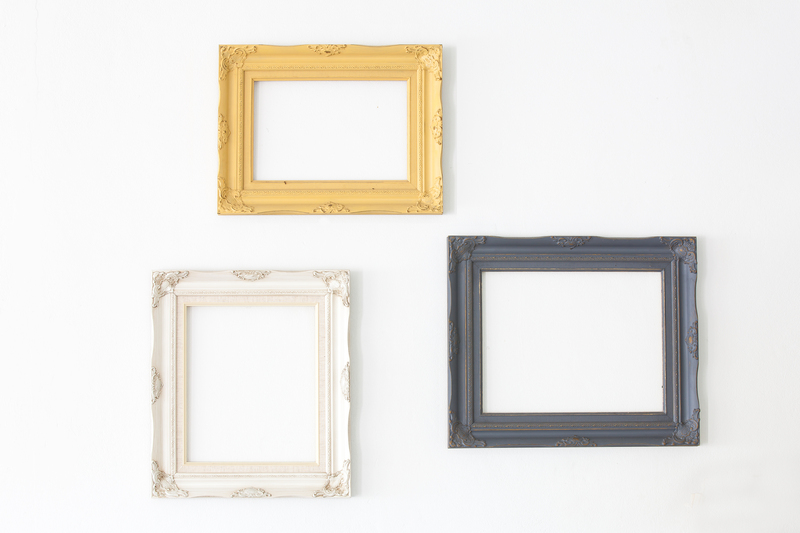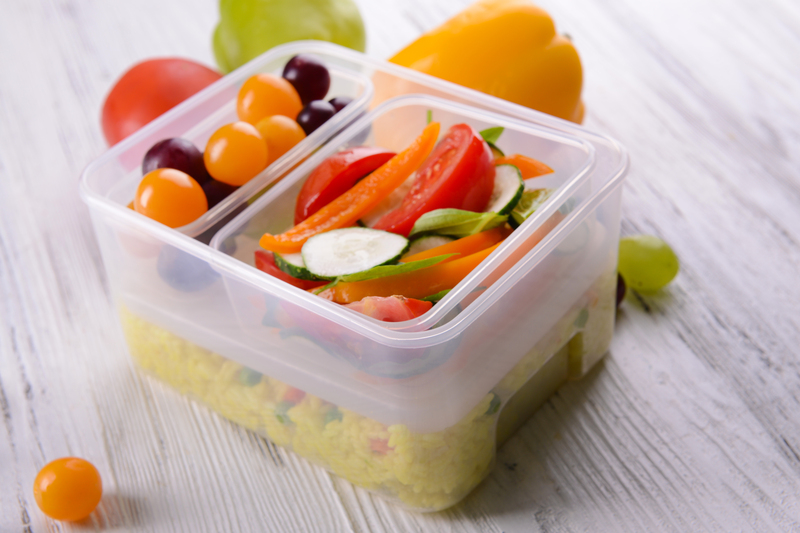Achieving Stress Relief Through the Act of De-cluttering
In today's fast-paced world, stress has become an almost inevitable part of our lives. The pressures of work, home, and social obligations can quickly lead to feelings of overwhelm and anxiety. However, there is a simple yet profound method many overlook when seeking emotional tranquility: de-cluttering. This comprehensive guide explores how to achieve stress relief through de-cluttering and offers practical steps for those ready to reclaim their peace of mind through organization and minimalism.
Understanding the Connection: Clutter and Stress
Before committing to a tidier lifestyle, it's important to recognize why clutter causes stress. Our surroundings dramatically impact our mental well-being, mood, and productivity. When we live or work in chaotic or disorganized environments, it can:
- Decrease our focus and efficiency
- Cause anxiety and restlessness
- Lead to feelings of guilt or embarrassment
- Interfere with relaxation and restful sleep
Clutter is more than just a nuisance; it can be a direct contributor to your stress levels. By understanding this connection, you empower yourself to make meaningful changes toward a calmer, more fulfilling life.
Psychological Effects: The Science Behind De-cluttering for Stress Relief
Research has consistently shown that environments filled with unnecessary items elevate cortisol -- the body's primary stress hormone. Studies from the Princeton Neuroscience Institute highlight how multiple stimuli (visual clutter) compete for our attention, reducing performance and heightening frustration. Essentially, de-cluttering helps reduce stress hormones and fosters clarity, both essential for well-being.

Benefits of De-cluttering for Mind and Body
The advantages extend far beyond aesthetics. Here's how de-cluttering provides stress relief and enhances your overall health:
- Boosts Productivity: Clean spaces improve focus and task efficiency.
- Elevates Mood: Orderly surroundings promote feelings of happiness and accomplishment.
- Improves Sleep: Bedrooms free of mess create a sanctuary for rest and relaxation.
- Strengthens Relationships: Less household tension and conflict with shared organizational systems.
- Encourages Mindfulness: The act itself becomes a meditative, mindful routine.
It's not just about throwing things away--it's about choosing what you allow into your life and shaping your environment to support your tranquility.
Step-by-Step Guide to Achieving Stress Relief Through De-cluttering
1. Set Clear Intentions
Before grabbing a trash bag, ask yourself: What is my goal for this space? Maybe you're seeking a restful bedroom, a productive home office, or a welcoming kitchen. Defining your objectives will motivate you and give your de-cluttering process a purpose beyond simply cleaning.
2. Start Small, Think Big
Overwhelm often prevents people from de-cluttering in the first place. The solution? Tackle small areas to build momentum. Consider these bite-sized options:
- The "junk" drawer
- Your nightstand
- A single shelf in your closet
- Countertops
Achieving little wins early on can inspire you to continue the process and keep stress levels low.
3. Use a Proven De-cluttering Method
Several strategies can streamline your journey. Some popular de-cluttering methods for stress relief include:
- The Four-Box Method: Have boxes labeled "Keep," "Donate," "Trash," and "Relocate." Touch each item only once and make quick decisions.
- KonMari Method: From Marie Kondo, keep only objects that spark joy. This engages your emotional connection and reduces stress about what to keep.
- 15-Minute Decluttering Sessions: Set a timer and focus on one spot for a short, manageable period.
Finding the right method for your personality and lifestyle makes decluttering easier and more enjoyable.
4. Let Go with Compassion
Sometimes, possessions hold sentimental value or represent unfulfilled aspirations. It's natural to feel resistance when letting go. Practice kindness toward yourself and your belongings:
- Thank each item for its use.
- Allow yourself to release guilt about past purchases or gifts.
- Remember: your worth is not connected to what you own.
This intentional letting go is key to transforming decluttering from a chore into an act of self-care that relieves stress.
5. Organize What Remains
After sorting and discarding excess, set up simple organizing systems for what's left:
- Store similar items together.
- Use containers, dividers, or baskets.
- Label shelves and boxes for easy maintenance.
Organization supports ongoing stress reduction, making daily routines smoother and more enjoyable.
6. Maintain a Clutter-Free Space
Successful decluttering is not a one-time project but a lifestyle change. Practice these habits to keep stress at bay and preserve your organized oasis:
- Adopt a "one-in, one-out" policy: For every new item you bring into your space, remove one.
- Regularly re-evaluate: Set aside time weekly or monthly for mini-decluttering sessions.
- Stay mindful of new purchases: Be intentional and avoid impulse buying.
Consistency is your ally in sustaining both a tranquil home and a peaceful mind.
Special Focus: De-cluttering for Specific Stressors
1. Achieving Stress Relief at Work Through De-cluttering
The benefits of decluttering extend to the workplace. Whether you work from home or in an office, excess paperwork, digital files, and desk clutter create mental blocks. Try these strategies:
- Digitize important documents and shred what you no longer need.
- Use folders and clear labeling for easy retrieval.
- End each day with a 5-minute tidy-up.
An orderly workspace promotes focus, reduces stress, and helps you start each day with energy and clarity.
2. Stress Relief for Families: Teaching Kids To De-clutter
Children and teens also benefit from organized environments. Teach them simple decluttering routines:
- Make it a fun, family challenge.
- Have regular "donation days" to instill generosity.
- Encourage them to keep only what they use and love.
Reducing excess toys, clothes, and school supplies not only decreases stress for the entire family but also builds lifelong habits of organization and self-care.
Emotional and Mental Health Rewards of De-cluttering
Beyond visual appeal, stress relief from de-cluttering reaches deep into emotional and mental health. Here are some powerful psychological benefits:
- Sense of Control: In uncertain times, organizing your environment restores a feeling of agency.
- Improved Self-Esteem: Success in decluttering provides positive reinforcement and self-confidence.
- Reduction in Decision Fatigue: Fewer choices about where things are or what to wear lessens mental exhaustion.
- Motivation for Other Areas: Seeing results encourages progress in additional life domains--such as health, finances, or relationships.
- Increased Comfort and Safety: Spaces free of clutter are easier to clean and navigate, lowering physical hazards and health risks.
De-cluttering as a Mindful, Healing Ritual
Beyond simply removing objects, de-cluttering for stress relief can become a mindful, almost meditative ritual. Try incorporating:
- Soothing music or aromatherapy while you're sorting
- Deep breathing before and after each session
- Gratitude for items that have served their purpose
- Affirmations such as "I am creating space for peace and joy."
When approached mindfully, de-cluttering is not just about organization: it's an act of self-compassion and emotional renewal.
Minimalism and the Long-Term Rewards of De-cluttering
Minimalism is the philosophy of living with less--focusing on what truly matters. While not everyone needs to become a minimalist, embracing its principles through regular decluttering offers sustainable, long-term stress relief:
- Fewer items mean less to maintain, reducing daily responsibilities.
- Free time and energy for hobbies, friendships, and passions.
- Financial savings by buying only what adds value.
- A stronger sense of contentment and gratitude.
Ultimately, decluttering paves the way for a richer, more intentional life, free from the burden of excess and the anxieties it brings.
Common Mistakes to Avoid When De-cluttering for Stress Relief
- Trying to do everything at once: This can increase, not decrease, your stress. Pace yourself and enjoy the journey, not just the destination.
- Striving for perfection: Real-life homes are never Instagram perfect. Focus on what works for you and your family.
- Being too sentimental or rigid: Strike a balance between cherishing meaningful items and allowing yourself to release the rest.
- Neglecting maintenance: Without regular upkeep, clutter will return. Build decluttering into your routine.

Resources and Tools for Maintaining a Clutter-Free, Stress-Reducing Home
- Books: "The Life-Changing Magic of Tidying Up" by Marie Kondo, "Decluttering at the Speed of Life" by Dana K. White.
- Apps: Sortly, Tody, and Evernote for digital organization and decluttering checklists.
- Communities: Online minimalism groups, forums, and local swap or donation networks for support and motivation.
Conclusion: Embrace De-cluttering as a Path to Lasting Stress Relief
Stress relief through the act of de-cluttering is achievable for anyone, regardless of home size, budget, or lifestyle. By understanding how clutter stresses us, taking manageable steps, embracing mindfulness, and committing to ongoing organization, you can create a sanctuary that reduces daily overwhelm and supports lasting well-being.
Start today--pick one small drawer, shelf, or surface. Experience how each act of letting go is an investment in your own peace, clarity, and happiness.
Remember: a tidier space isn't simply an aesthetic choice--it's a powerful, science-backed tool for reclaiming your calm, joy, and control in a hectic world. Achieve real stress relief by de-cluttering, and let your journey to tranquility begin now.